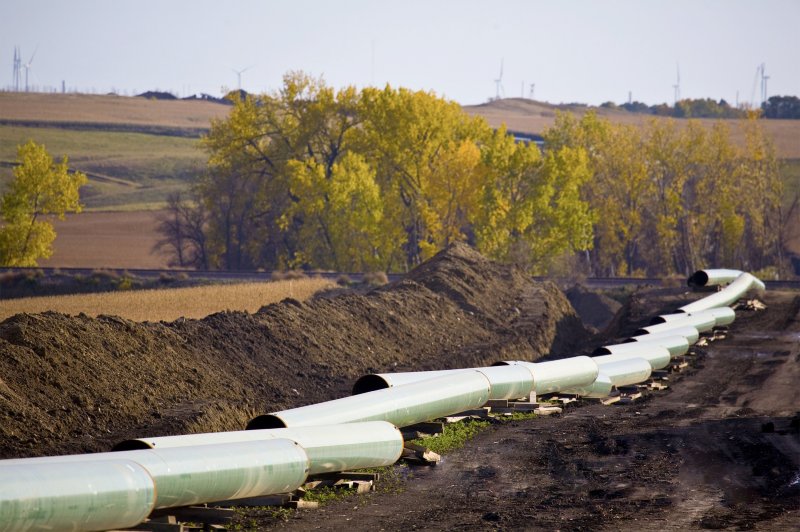Construction of the Keystone XL pipeline is shown in North Dakota. (courtesy TransCanada)
WASHINGTON, Nov. 5 (UPI) -- The outcome of the U.S. midterm elections means there may be enough votes in the full Senate to force a vote on Keystone XL legislation, results show.
A shift in control in the Senate from Democrats to Republicans means there may now be at least 60 votes in favor of the pipeline, overcoming the majority needed to break a filibuster.
In states from West Virginia to Colorado, Republicans took the place of Democrats long opposed to the controversial pipeline planned to cross the U.S.-Canadian border.
"I think you're going to see us bring up energy legislation right away and Keystone will be one of the first things we pass," Sen. John Hoeven, R-N.D., said late Tuesday.
Hoeven and Sen. Mary Landrieu, D-La., chairwoman of the Senate Energy Committee, introduced legislation in May that would immediately authorize pipeline company TransCanada's application to build Keystone XL.
Similar bills have stalled because of opposition from Senate Democrats. Hoeven was not up for election during the midterm. Landrieu was unable to take the majority of the votes needed to stave off a challenge from Bill Cassidy, her Republican challenger in Louisiana. That contest now heads to a runoff in December. Sen. Lisa Murkowski, R-Alaska, will take over as chairwoman of the Senate Energy Committee.
When members of the House of Representatives passed legislation in favor of Keystone XL early this year, the White House said it "strongly" opposed the measure and threatened a veto.
Advocates said before Tuesday's vote a Republican-controlled Senate was bad news for an environment that several U.N. reports have said is threatened by the continued reliance on fossil fuels. Tar sands, the type of oil designated for Keystone XL, is viewed as more toxic to the environment than conventional oil.
When Hoeven and Landrieu introduced their bill in May, Oil Change International, an advocacy group opposed to Keystone XL, said both had received major campaign support from the oil industry.
Campaign contributions finds the nine Democratic senators who joined the entire rank of Senate Republicans in co-sponsoring the bill received an average $375,000 each in "dirty energy money," the advocacy group said.
Keystone XL planner TransCanada submitted an application to the U.S. government more than six years ago. A special permit is needed because it would cross the federal border.
TransCanada said in a conference call on third quarter earnings the cost of building the pipeline has nearly doubled to $8 billion since it was initially proposed.
Keystone's fate rests in part with the Nebraska courts. In April, the U.S. State Department said challenges to a state law giving Nebraska Gov. Dave Heineman authority over the pipeline's route and the more than 2.5 million public comments meant more time was needed for federal review.
A decision from the Nebraska court is expected in early 2015.















